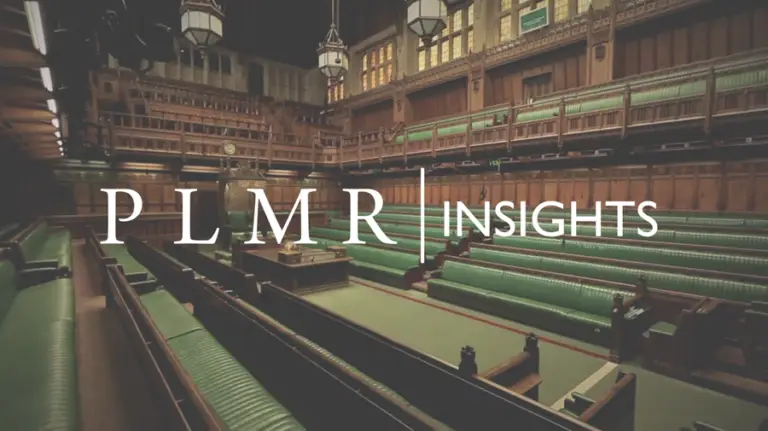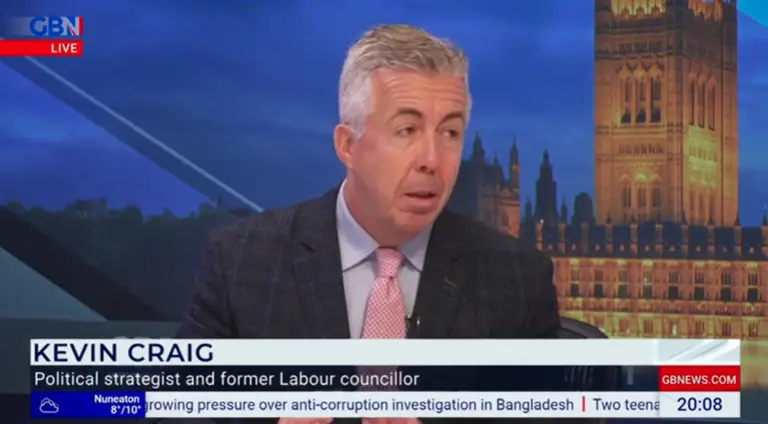Tomorrow will see voters turn out in a truly unique set of elections (the biggest ever outside of a General Election) that will have substantial consequences for the future of the United Kingdom. Scotland will be electing 129 members of the Scottish Parliament, Wales 60 members of the Senedd, in England there are 143 councils, 39 Police and Crime Commissioners, 13 Metro Mayors and a Parliamentary by-election to look forward to.
The PLMR team will be keeping you up to date with results as they happen across the next few days. Our team has put together a range of useful resources to help you get to grips with the key things to know:
- As Londoners prepare to go to the polls tomorrow, we’ve put together a quick video to explain exactly how the London Mayoral and Assembly elections work.
- PLMR Scotland have looked at what tomorrow’s results could mean for the Union.
- PLMR Birmingham have put together a handy guide on what to expect from the West Midlands Metro Mayor contest here.
- PLMR East of England have put together an election briefing covering the key council battles across the region.
- You can find our insights on the Welsh elections here.
As Londoners prepare to go to the polls tomorrow, we've put together a quick video to explain exactly how the London Mayoral and Assembly elections work. #Elections2021 #London pic.twitter.com/cduBkS4EBs
— PLMR 💡 (@PLMRLtd) May 5, 2021
–
Scotland
The Scottish Parliament election has been dominated by the question of a second independence referendum. Polls show the SNP will certainly remain the largest party and so commentary has been focused around whether they will secure a majority. While the SNP say it would only take a pro-independence majority rather than an SNP majority to provide a mandate for a referendum, it is commonly held that a failure by the SNP to secure a majority would undermine the cause. A second referendum is supported by the SNP, Greens and The Alba Party while being opposed by the Conservatives, Labour and Liberal Democrats.
Among the opposition, the Conservatives are hoping to maintain their status of being the second largest party under new leader Douglas Ross, who is notably less popular than both his predecessors, the already unpopular Jackson Carlaw, and the more popular Ruth Davidson. They’ll have to do this while holding off a renewed Labour party led by popular new leader Anas Sarwar. Meanwhile, the Greens look set to make gains while the Liberal Democrats have so far struggled to break through. The wildcard is the Alba Party, formed by former First Minister Alex Salmond with the aim of securing a “supermajority” for independence. It remains to be seen if they will be able to convince enough SNP supporters to loan them their regional vote in order to secure seats in Parliament.
Aside from independence, other major issues in the campaign have been the recovery from the pandemic, the environment, education, and social care.
Wales
The Welsh Election has been largely focused on COVID-19, the economy and Labour’s record in Government. After 22 years in office, Labour’s remarkable longevity is being tested by both the Conservatives and Plaid Cymru. The aftermath of the 2019 General Election looms heavily here, where the Conservatives won every seat bar one in North Wales and forced Labour to retreat to their heartlands. The Conservatives will be encouraged by the fact that Senedd constituencies are identical to Westminster constituencies and are hoping to replicate their 2019 success while staving off the emerging threat of the Abolish the Welsh Assembly Party. Abolish has largely secured the support of former UKIP voters in Wales and is looking to win seats in the Senedd for the first time. Meanwhile, Plaid hopes to syphon off support from Labour through eye-catching progressive policies and harnessing support for independence that is mostly found among young people.
Polls show that Labour look set to lose a significant number of seats in this election and since Plaid has ruled out working with Conservatives, a Lab-Plaid coalition remains the most likely outcome of the election. Although, with Plaid having said they would not act as the “junior partner” in a coalition, it remains unclear what the next Welsh Government will look like and who will be First Minister.
Hartlepool by-election
With Brexit disappearing in the rear-view mirror, ‘Super Thursday’ will be a test of this government’s support across the ‘Red Wall’. As momentous as the 2019 election victory was, questions remained over whether the Conservatives could retain their support in these parts of the country once the issue of leaving the EU had been resolved. If this week’s polling in Hartlepool is anything to go by, the answer is a resounding yes. According to Survation for ITV’s Good Morning Britain, the Tories have a thumping 17-point lead over Labour in the seat.
If the polls are correct, and the Conservatives do take Hartlepool on Thursday, it will be a strong indicator of this government’s future electoral prospects after one of the most challenging 12-months this country has seen post-war. It would give weight to the idea that members of the public will remember the successful opening up of society, expedited by the vaccine success, rather than the mistakes committed earlier on in the pandemic.
Such an outcome would raise difficult questions for Keir Starmer. The north-east England seat has elected a Labour MP at every parliamentary election since 1964.
In the running for the election is Dr Paul Williams, an NHS GP, but he faces a strong challenge from Conservative Jill Mortimer, a former farmer and district councillor for Hambleton in North Yorkshire. Visiting over the Bank Holiday, Prime Minister Boris Johnson launched a charm offensive by promising “jobs, jabs and cops” in Hartlepool in hopes to win the seat, which would be a first for the Conservatives.
Metro Mayor contests
The elections for the UK’s metro mayoralties will provide important insights for the parties on where they are building (or indeed losing) support, and also have the potential to shape areas of focus in future elections. The Tees Valley and West Midlands mayoral elections will turn eyes onto whether Labour has made ground on the Tories in key areas, or if the Conservatives have further shored up support in former Labour heartlands. Meanwhile, Labour will hope that mayoral elections in other city regions show a strengthening of their urban base.
Tees Valley
Perhaps providing the most valuable insight into Labour’s performance in former ‘red wall’ areas is the Tees Valley mayoral election. Conservative Ben Houchen’s shock narrow victory of just over 2,000 votes in 2017 was seen by many as the first indicator of Labour’s collapse to come in the red wall. Houchen is expected to benefit from the Government’s commitment to Teesside which it sees as a key region within its levelling up agenda, the area having been designated freeport status and with Darlington set to be the seat for the Treasury’s northern economic base.
Houchen has also built up a strong profile in Teesside, having been vocal on flagship local issues like the regeneration of the Redcar steelworks site, and as a result benefits from more name recognition amongst residents than any other metro mayor bar Andy Burnham and Sadiq Khan. These factors make the fight for Labour’s Jessie Joe Jacobs a difficult one and a Ben Houchen victory is expected – Opinium polling today suggests he could win almost twice as many first-preference votes as his rival.
West Midlands
The West Midlands mayoralty was another close-run race in 2017, with Conservative Andy Street winning by just under 4,000 votes. Labour’s Liam Byrne, former Chief Secretary to the Treasury, had been hoping for a buoyant campaign that would pose a significant challenge to Street, at one point claiming he would win “easily.” This hubris could come back to bite Byrne with recent polling showing a comfortable lead for Street in first-preference votes.
The West Midlands is a key fight for Labour and their first test since losing six key seats in the area in 2019. They were hoping to run the race close and show signs of regaining support in those former red wall areas, but polling suggests that Street benefits from good levels of likeability and performance ratings amongst residents after his time as mayor. Byrne does not have such advantages, with a lower profile amongst West Midlands voters despite his ministerial past.
Whilst Labour hoped to capitalise on Street’s fraught relationship with Boris Johnson (the Tory managed his own campaign with little involvement from CCHQ), Street may conversely benefit from being seen as a non-partisan figure unafraid to challenge the Government – something the Government will have no problem with should he see through a Conservative win in the region.
London
It looks as if Sadiq Khan is on course to easily win a second term as London mayor, having enjoyed a consistent poll lead of over 20 points over Conservative candidate Shaun Bailey for most of the campaign, despite this narrowing in recent days. The latter has suffered from a somewhat weak campaign, during which he has attracted criticism over various stances and comments, as well as for aggressive campaigning tactics.
The failure of Bailey to make an impact in London will be bad news to Conservatives, who have seen their vote share in London consistently decreasing in the past two decades. The election is expected to reflect Labour’s strong performance amongst a young, urban and diverse base, which now grows in significant numbers in the suburbs as well as Inner London as the city’s demographics have changed in recent years.
The Tories could well drop below their eight of 25 London Assembly seats, a current low. The landscape in London, then, is a far cry from when the Prime Minister spent his two terms as mayor, and Labour may see a big win here as evidence it needs to build on a base of young, urban voters going forward. It will also be intriguing to see how a variety of independent candidates affects the race, and whether the Greens and Lib Dems can increase their vote share against a strong London Labour Party.
West Yorkshire
The race to elect the first ever West Yorkshire mayor could be a close-fought one. Labour will hope that Tracy Brabin, MP for Batley and Spen, will become the UK’s first female metro mayor, running on a platform focussing on jobs, police officers and bus services. Whilst Labour controls all five boroughs in the city region, Labour lost four West Yorkshire seats to the Tories in 2019, and the now Conservative areas of Wakefield and Keighley could prove crucial in electing the region’s first mayor. The Tories would see a win for Matthew Robinson here as an important result which further strengthens their hold on the red wall.
West of England
Labour are quietly confident that their candidate Dan Norris may be able to unseat the incumbent Conservative Tim Bowles and beat Tory candidate Samuel Williams to the mayoralty. The eventual winner, from any party, would likely want to increase the profile of the role after the Prime Minister failed to name the West of England mayor when asked recently.
Key to this race may be the Liberal Democrat vote. Finishing a close 3rd in 2017 with 20.2% of the first round vote, the race in the West of England could be a key indicator of whether Labour are taking voters from the Lib Dems in this region, reflecting wider trends across the UK. The West of England mayoral election could be important in defining Labour’s future tactics to target Liberal Democrat supporters and build more of a base in regions such as the West and South-West.
Greater Manchester
Labour’s Andy Burnham is favourite to win another three years as Greater Manchester mayor, having won 63% of the vote in 2017. The Conservative candidate, Laura Evans, has attempted to use Burnham’s repeated quarrels with the Government as a line of attack, but it is unlikely to come off and Burnham will probably continue as one of the foremost Labour figures speaking out against the Government. Having helped bring the role of metro mayor to prominence and secure significant powers, should Burnham win he will continue to push for increased devolution and to be one of the most influential voices along with Sadiq Khan outside the parliamentary Labour party.
Liverpool City Region
Steve Rotheram, like Burnham, will be hoping to build on a strong 2017 showing in which he secured 59.3% of first round votes. He is likely to win another term as Liverpool City Region mayor, but the election seems to be overshadowed by the race for Liverpool city mayor, after the bribery scandal involving former Liverpool mayor Joe Anderson has resulted in a closer contest for Labour’s city mayoral candidate Joanne Anderson (no relation). It will be interesting to note whether the Joe Anderson scandal affects Rotheram’s showing in what should be an easy win for Labour, and by how much.
Cambridgeshire and Peterborough
Incumbent mayor, Conservative James Palmer, should win this without much trouble. Should his vote share suffer a significant drop, though, this may be a worrying sign for the Tories and their performance in smaller Southern cities. The Liberal Democrat vote share could be interesting – after securing 23.5% of first round votes in 2017, Labour may look to gain more voters from them this time round.




